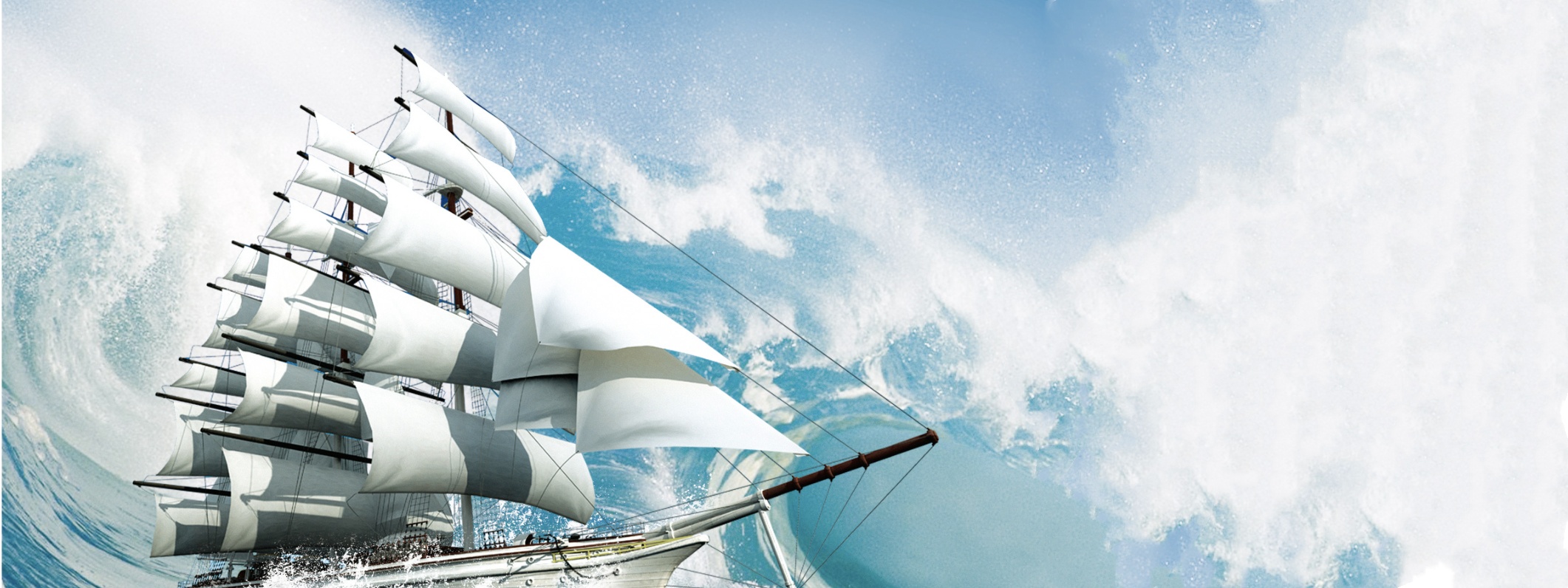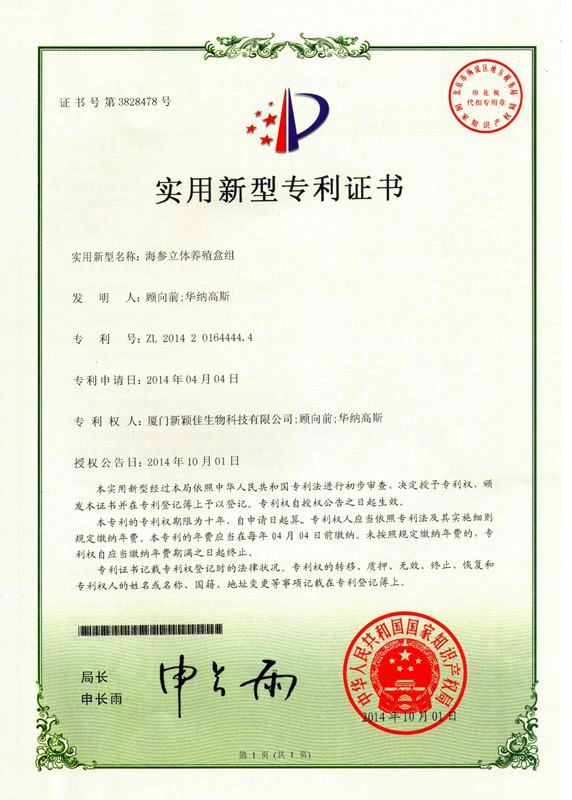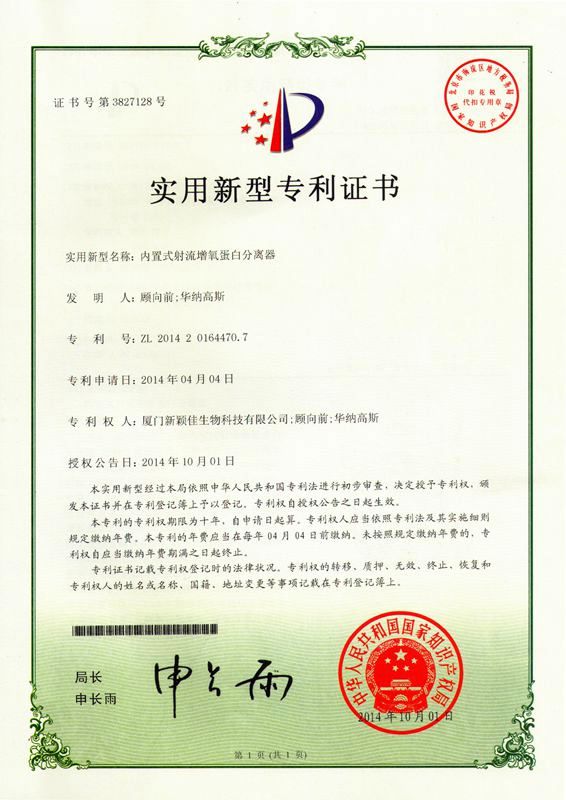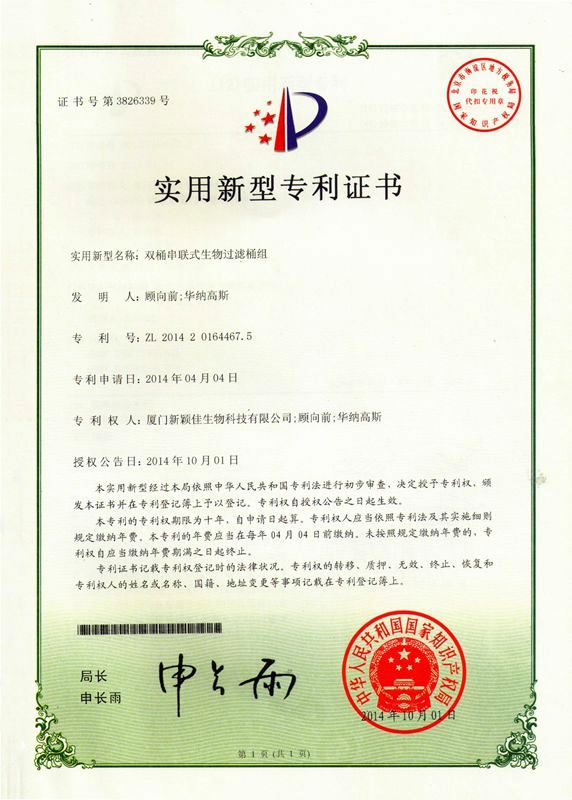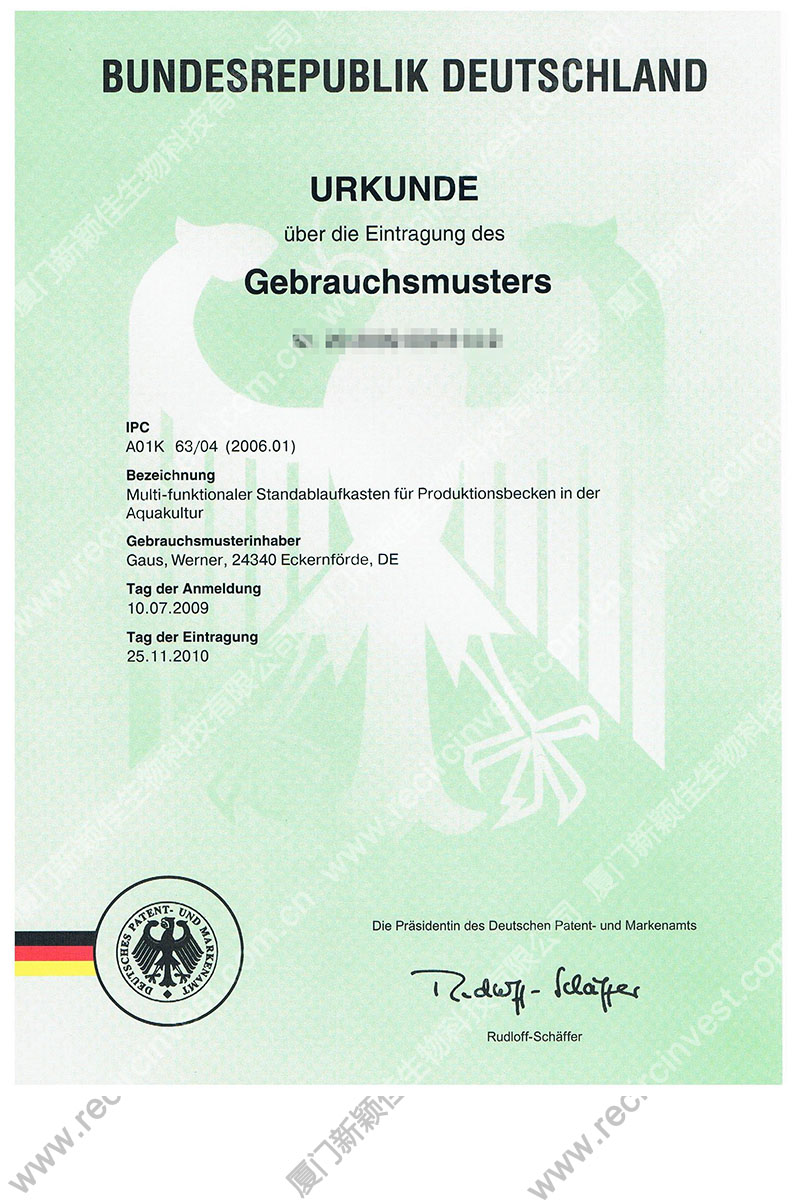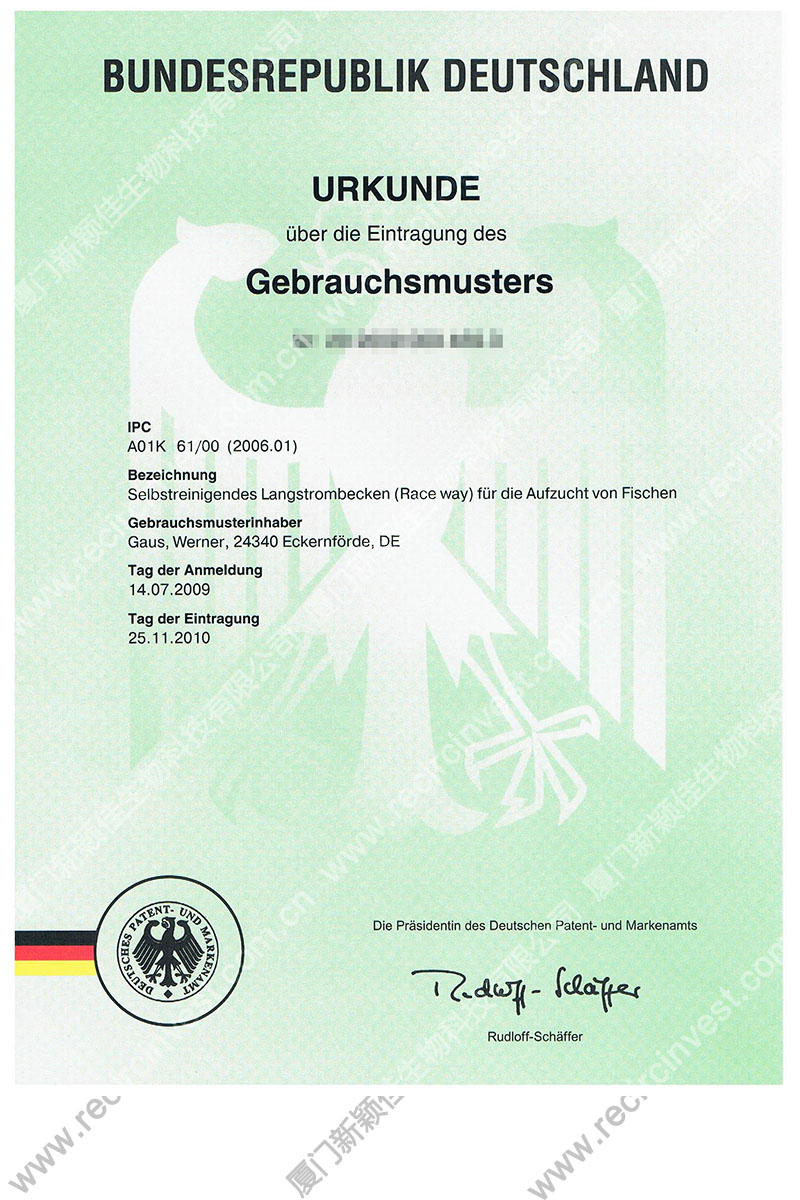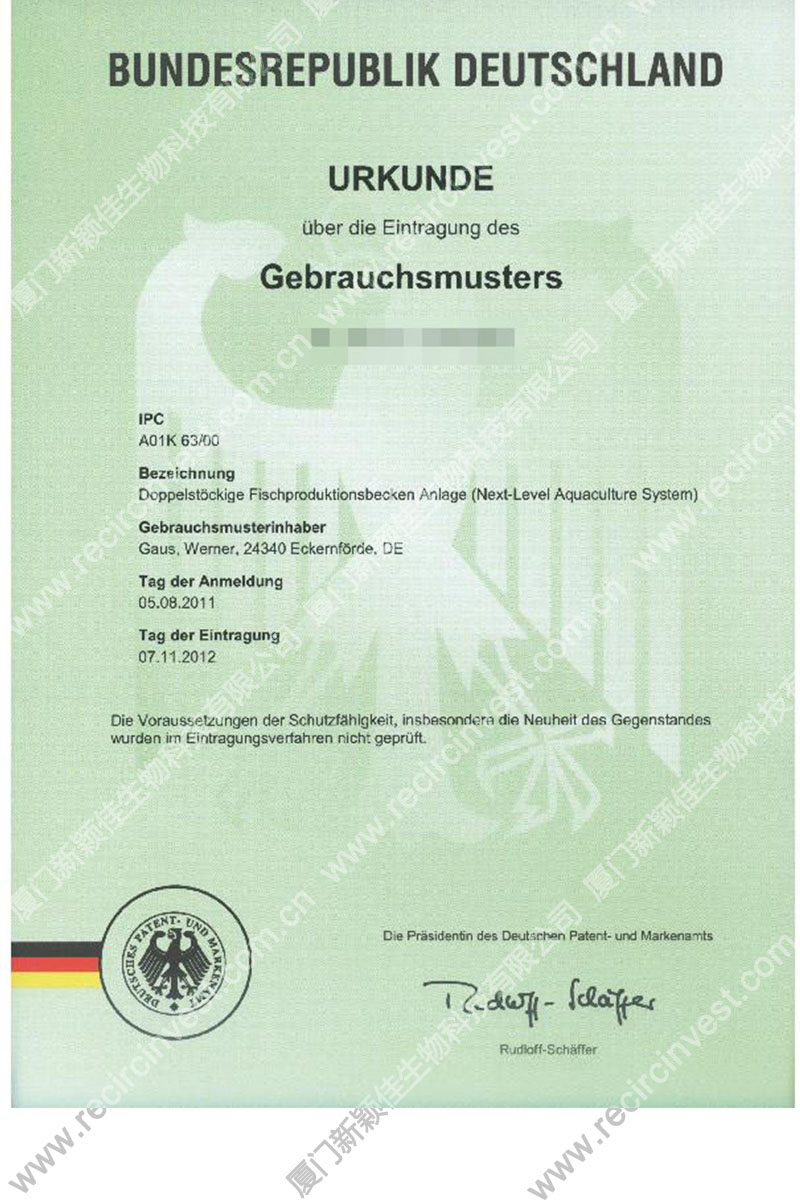Xiamen XinYinjia Biotechnology Co., Ltd. is a "leader" in indoor factory based circular water aquaculture systems and technologies. Xinxingjia's high-level indoor factory based circular water aquaculture technology is an advanced, stable, and industrial level modular technology, especially suitable for the development and utilization of large-scale aquaculture parks. The highest purpose of Xinxinjia's establishment is to promote the upgrading and transformation of China's aquaculture industry by introducing advanced circular aquaculture systems and technologies from around the world. Its social efficacy is:
★ Reduce the damage caused to the natural environment by fishing for wild fish;
★ Reduce pollution caused by traditional aquaculture models;
★ Reduce the enormous risks of wild fisheries and continuously minimize local aquaculture pollution;
★ Drive innovation in the food processing industry; ★ Promote the long-term sustainable development of land-based aquaculture industry without relying on chemical drugs;
★ Reduce farmers' breeding risks by predicting the growth rate of high-end commodity fish and producing them near metropolitan areas, saving transportation costs and meeting market demand in real time.
EXPERTS
- 1986-1989
Werner Gaus proposed the key concepts and new technologies with the Danish National New Science and Technology Committee for the systematic research and testing and development of indoor recirculated aquaculture systems. He helped to develop the first polygon fiberglass aquaculture farming system.。
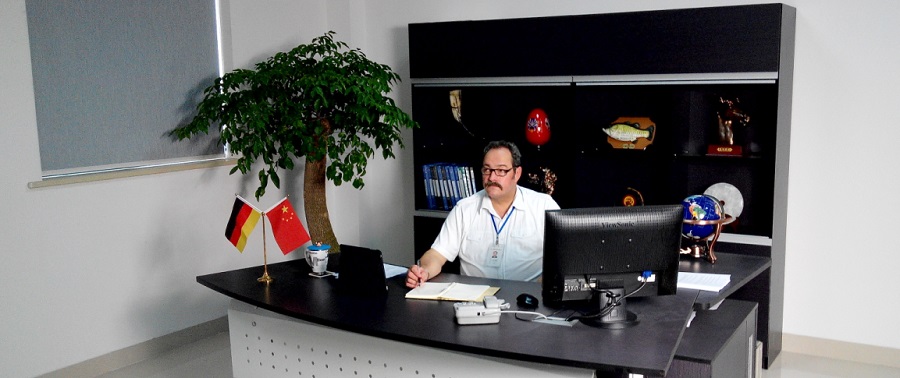
- 1989年
Werner Gaus sold and commissioned the first industrialized module for intensive indoor eel farming. in Denmark. This was one of the smaller scale demonstration factory units. The total holding water volume was 150m³. The total annual output reached 30 tons of eel (about 180,000 pcs.).

- 1991年
After Werner Gaus perfected the indoor eel farming system, he assisted to construct a medium-size scale eel farm in the Netherlands specifically tailored for commercial production. This farming unit utilizes a total water volume of 600 tons and produces an annual output of 120 tons of eel.
.jpg)
- 1992年
Werner Gaus was invited by the City of Waren in Eastern Germany to renovate a circulating water treatment system for an indoor trout and sturgeon breeding plant to increase the existing production and to improve the safety level. The plant concrete structure breeding tanks had an annual output reaching 200 tons of trout in a holding volume of 1000m³ water, sturgeon in 500 m³ water, with an annual output of 50 tons, and a number of salmon fry to be released in the rivers in a small system holding 200m³ water.
.jpg)
- 1993年
In German towns of Demin and Bornhoeved, respectively, he established the annual output of 25 tons of FRP super-intensive RAS indoor farms for the production of Eel and Sturgeon.
.jpg)
- 1994-1996年
e was invited by the National Iranian Ministry of Fisheries (Shilat) to deliver and commissioned five sets of indoor RAS farms in Rashd (near the Caspian Sea), and Yasud (Southern Iran). For this system, he developed a new farming model - large cement breeding tanks in race-way design in combination with a high-performance water treatment system. Two sets of them were used for the nursery and breeding 5,000,000 of sturgeon fingerlings; two sets were used for the breeding of Caspian salmon, with an annual output of 5 million salmon fry. All fingerling and fry are produced to be released into the Caspian sea or the rivers flowing in to it. Last set was to produce trout with an annual output of 500 tons.
- 1997年
He supported in the German city of Kiel Europe's first indoor factory Turbot nursery plant to produce fry and sell to grow out market in Spain. Annual amount of fingerlings reached 500,000 pcs.
.jpg)
- 1998年
Werner Gaus was challenged to design and commission the world's first indoor RAS Ayu farm in Taiwan, China with an annual output of 100 tons holding 700m³ water. This plant was specifically designed to withstand earthquakes.
.jpg)
- 1999年
Werner Gaus established two indoor concrete-structure RAS farms in Cambridge, United Kingdom. The total annual output reached 100 tons of Tilapia and 100 tons Hybrid Stripe Bass in a holding volume of 1400m³ (tons) water.
.jpg)
- 2000年
Werner Gaus helped to build China's first indoor recirculation aquaculture vannamei farm in Xiaotangshan, Beijing, China. At same time, the Japanese Hazama Gumi, a Japan's semi-state enterprise, agreed to acquire and establish the World’s first RAS farming system for the vertical farming of shrimp from Werner Gaus and a long lasting R&D co-operation period was bearing the fruits of all efforts when this technology finally was internationally patented and approved in 2003 with the patent number: JP2003023914. During this time, the “Litopenaeus vannamei” was introduced by Werner Gaus to Japan the first time as a live species and received national certification for the import of the white shrimp to be cultured in Japan in RAS systems from thereon.
- 2004年
He helped Manas, Changji City, Xinjiang Province, China to set up nine indoor recirculated aquaculture vannamei farms.
.jpg)
- 2008年
Werner Gaus with his solid and renowned aquaculture knowledge has reduced most of his activities to teaching and consulting as a RAS specialist in all aspects of modern aquaculture. He consults well known companies like the German based Turkish company “INKAS Bau GmbH” for their Aquaculture projects in Turkey.
.jpg)
- 2010-2012年
The “Inter IKEA” group from Waterloo / Belgium engaged Werner Gaus as sole aquaculture consultant in regards of placing large scale aquaculture projects throughout Europe mainly to the breeding of meagre, cobia, red snapper, hybrid striped bass and barramundi. Each of these projects’ size covered an area not less than 850 mu (57 Ha) with an initial investment not less than 350 million euro per unit. 2011-2012 Primarily worked as a RAS consultant for various aquaculture companies in China, designed and planned several different kinds of recirculated water projects. In Qingdao, China, in particular, planned, designed and implemented the world’s first and most advanced indoor sea cucumber (flat fish) grow-out 3D RAS system. This system can drive down farming costs and can be duplicated in large scale in any kind of climate anywhere.
.jpg)
- 2013年至今
Present Mr Werner Gaus joined a Xiamen start-up company, Xiamen RecircInvest Biotech Co., Ltd.) as Chief Technology Officer (CTO) to build a RAS demonstration site in Haicang Industrial Park, Xiamen City, China to begin China and global promotion of his mature RAS technology. This Haicang demonstration site has both the indoor double-layer, multi-species fish grow-out system and the indoor 3D, tri-level, 36-tank sea cucumber (flat fish) grow-out system on display. Both systems do not occupy more than 400 square meters of factory space. Both systems were commissioned toward the end of 2013 with successful growing of many high-end commercial fish species such Giant Group (GG), Tiger GG, Leopard Coral Grouper, Jade Perch, etc. and sea cucumber. Both systems can be flexibly tuned to grow either saltwater or freshwater species. Fish grow-out system can comfortably produce 40-50 tons of output per year. The sea cucumber system is designed to produce four seasons, all year round, 22.7 tons of output per year. Xiamen RecircInvest Biotech Co. is now gaining extensive attention from all levels of governments in China, RAS experts, fisheries research institutes, and various private and public enterprises, and has started working as the official scientific research and experimental base for Fujian Institute of Oceanography (FIJO). FIJO is the one and only authorized fishery and oceanographic training organization for over fifty under-developing countries in the world for China.
.jpg)
Project support
1、Preliminary preparations:
Preliminary Meeting: Do not hesitate to approach us to voice and mutually test the feasibility of your ideas. We commit to provide you with the most cost effective solution. We shall then draw up the best matching supply agreement.。
2、Preparation Stage:
RIB assists you to clarify the site conditions, construction and building requirements, financing and possibly governmental funding avenues. We will then provide you with the necessary information and criteria for the infrastructure works and farm buildings’ construction. In our design layout, we will incorporate options for possible future site expansion possibilities.
3、Installation:
Our system(s) is designed as a DIY system. So you can save some assembly costs if you consider using your own installation team. Regardless, our technical staff also can deliver a turn-key solution system or simply assist you with your DIY assembly as needed.
4、System Start-up
After-sales service is particularly important to us. Our specialized after-sales support consists of:
6、Employee Training
Training on relevant operational procedures for the first two weeks before the system installation is about to be completed and put into use
.jpg)


